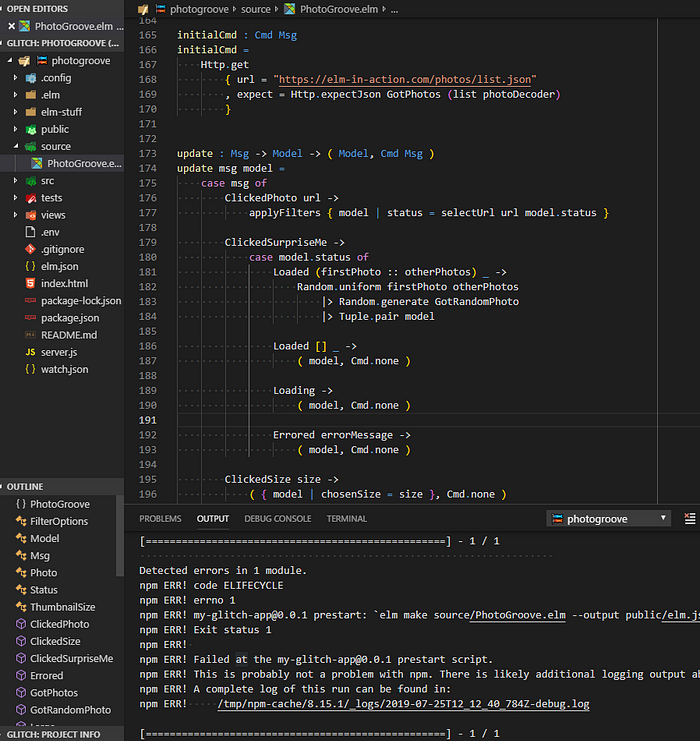I know I need a Violet Card. With a Violet Card I qualify for additional support while I wait in the long line. This is important, especially if you don’t have family who can come and bring you food while you wait in the long line. I ask my friend and she shakes her head in pity at me. No, she says, you have to collect a form for a Violet Card from the Department directly. Actually, I’m not sure if they call it a Violet Card anymore. I can’t remember, she says, I heard they changed it. Don’t go to the Department office in Central, she tells me, they do Blue Cards, Violet Cards and Green Cards too so the lines are longer. She’s heard that you have to be there queuing before it opens if you want to be seen at the Department office in Central. East is better, she says.
So here I am, at the Department office in East. Out the front, two guards stand in front of the bright yellow sign. They look bored. Things have changed since last year, since an incident at the Department office in South. More guards, these days.
I walk in, down the stairs. There’s a faint buzzing in my head, from the air conditioning. I see the end of a queue, but I don’t know for sure it’s my queue, that it’s the queue I need to stand in. It goes around a corner.
I walk past the people in the queue, around the corner. At the far end of the hallway I can see a door through to a waiting room. A guard stands besides the door. I walk towards him. He shakes his head, nods at the queue. I’m close enough now to see that they are waiting to collect a ticket from a ticket dispenser. There are three along the wall, but only one seems to be working. I think I know what I need to do, now: I need a ticket so that I can wait in the waiting room.
I turn around and walk back to the end of the line. The people standing in line stare at me, apathetically, before returning their gazes to their phones. I imagine that they resented me walking past them. I imagine they wondered who I thought I was. I imagine they feel cheered by the presence of someone else, further behind them. I imagine they tell themselves “At least I’m not at the back of the line anymore”.
I pull out my phone, instinctively, and tap at it, bored already. I stare at the backs of people’s heads, at the beige walls, up at the ceiling. I tap my fingers against my legs until the man standing in front of me shifts his weight to the other leg and I imagine he is standing, annoyed, wanting me to be quiet but not wanting to turn around and tell me that. I try and be quiet, but my breathing sounds loud to me.
The line advances, slowly. A person joins the queue behind me, and then another. I round the corner. Now I can see the waiting room. I try to read something on my phone, but the buzzing is making it hard for me to concentrate.
The buzzing in my head is becoming louder. I look around, trying to find some sort of distraction. There are posters on the wall, of smiling families, of a man cheerfully reading a letter, a woman sitting at a coffee table. The text of the posters is friendly: “You and us, in partnership, together”, one reads; “Helping you get back on your feet”, another.
Elsewhere there are smaller, A4 pieces of paper stuck to the wall. One of them warns that tardiness to appointments may cause your Cards to be revoked. Another reminds me that omitting to inform the Department about other Cards that one possesses is a prosecutable offense. A third suggests that I consider the space to be a “Neutral Tone Zone” and that everyone’s vocal tones must remain within a neutral range or risk ejection from the area.
Finally I reach the front of the ticket dispenser. I slide in my Green Card and punch in my Department Customer Identification number. There is a moment’s pause, then the dispenser starts rattling. I assume this is part of the normal operation, but it continues, on and on. I start to count in my head. How long has it been since it started rattling? Twenty seconds? I’ll count from there and stop if it takes more than a minute. Thirty. Is a minute too long? I look back at the line. They look at me. Forty. No, a minute is fine. I have a right to be here. I haven’t done anything wrong.
Did I do it wrong?
I try to think back to the numbers I entered. No, I can’t have typed them wrong. I know them by muscle memory these days. I realise I’ve forgotten to keep count. Shit. Where was I?
The rattling stops abruptly and a ticket appears. I pull out my Green Card, and take the ticket. I turn away and walk towards the waiting room. The waiting room is nearly empty. A couple huddle in one corner, a disheveled man counts his fingers in one of the chairs by the door, a guard sits near the far door. The walls have been painted a cheerful pastel blue, and are covered with more posters and pamphlets and warnings. There is music playing, some kind of reedy whistling is piping through a small speaker mounted in a corner of the ceiling. At the far end of the room, a man sits at a counter below a large screen displaying what I assume is a ticket number. It’s not my ticket number, and no-one stands before the man. He is staring at his screen, tapping keys.
I sit.
Time passes. I want distractions; I read the posters. The whistling song continues. I don’t want to take my eyes off the ticket number screen, afraid I will miss my number. What is my number? I look at my ticket. X28. Ok. The screen says P35. It can’t be linear, there aren’t enough people here. Someone else walks in from the hallway, sits down.
Time passes. The number on the screen finally changes: N02. It’s not linear. No-one goes to the counter. The man behind the counter looks around the room. After a moment, the number changes again: 50R. The couple stand up and walk up to the counter.
The buzzing in my head reminds me of its presence. I imagine that it has a rhythm, like an old air-conditioning unit. BzzzzZZzzzZZzzzZzzzz. The couple leave. The number stays on the screen, unchanged. The man behind the counter goes back to staring at his monitor. Someone else comes in and sits down.
I can feel the buzzing curling around my ears. I become convinced that it has a weight to it, that it exerts a pressure that I start to feel, pressing on my skin. I remind myself that we’re all living under the pressure of the atmosphere. I focus on my breathing. I feel the buzzing wrap itself around me, close against my skin.
The number on the screen has changed, and the disheveled man is at the counter. He wants something. He doesn’t speak well. The man behind the counter explains, slowly, that the disheveled man hasn’t brought the correct paperwork, that the Department can’t help him until he brings a log of his Green Card usage. The disheveled man doesn’t want to leave. The man behind the counter smiles and explains that he cannot help without the paperwork.
I wonder if there is going to be a fight, but the disheveled man turns and shuffles out of the room. I hear him muttering to himself. The guard looks disappointed, before returning to staring across the room. The man behind the counter stares at his monitor, pecking at his keyboard.
I can feel the buzzing starting to inhabit the back of my head, down by the base of the skull. It is warm and red and insistent. I breathe. I look at the large screen. In my pocket, I clench my thumb against the skin of my hand, letting the pain distract me from the buzzing.
I see the number on the screen change to X28. Is that my number? I know I was an ‘X’. I pull the ticket from my pocket. Yes. I have the right number. The man behind the counter is looking up and around the room.
I approach the counter. I try to ignore the buzzing in my head. The man behind the counter smiles. His smile doesn’t reach his eyes. He asks what the Department can do for me today.
I tell him I would like to pick up the forms needed to apply for a Violet Card. He smiles and tells me that the Department doesn’t provide Violet Cards anymore. Is there anything else he can help me with today?
I’ve heard about this. They’ve changed the system, but you can still get the same effect, somehow, with some other card. Maybe they’ve renamed it?
I ask him if there is a replacement or equivalent for the Violet Card. He stops me, no, the Department only offers Blue Cards these days. I know a Blue Card isn’t what I need. I mention the fits, ask if there is anything that might help with that. He smiles and waits for me to continue. I remain silent. He smiles a moment longer. I stand there. I can tell he knows what I’m asking. Have I used the correct words? Perhaps I’m really in the wrong place. Please let me be in the right place.
Oh; he says; perhaps you are looking for a Red Card supplement form for the Blue Card. Yes, I say, that must be it. Do you have a Blue Card already, he asks. No, I don’t have a Blue Card, yet. You need a Blue Card as well, he tells me. He reaches over and takes a red form from a pile, slips it into a larger, blue form. You must take this, he says, indicating the red form and smiling at me, take this and get this part here filled out by a registered psycholocutioner, then fill in the rest, and ring our main number to arrange an appointment to start the process. Please bear in mind that our current waitlist for appointments will mean at least a ten working-day wait from the time you call to arrange the appointment.
Can I arrange the appointment now? I’m sure I know the answer but I ask anyway. Oh no, he says, we don’t allow that as we must have received a referral from your psycholocutioner before we can arrange an appointment. You will want to wait at least two days from your appointment with your psycholocutioner but no more than five working days, as referrals expire within a fortnight.
He smiles at me. Is there anything else the Department can do for you today? I clutch the forms to my chest. No, I say, thank you, that’s all. Have a lovely afternoon, he says, and turns back to his monitor, his left hand reaching to press the red button he must use to change the ticket number on the big screen.
I turn and walk out. The people in the line to the ticket dispenser lift up their heads again and watch me leave before returning to their phones.


